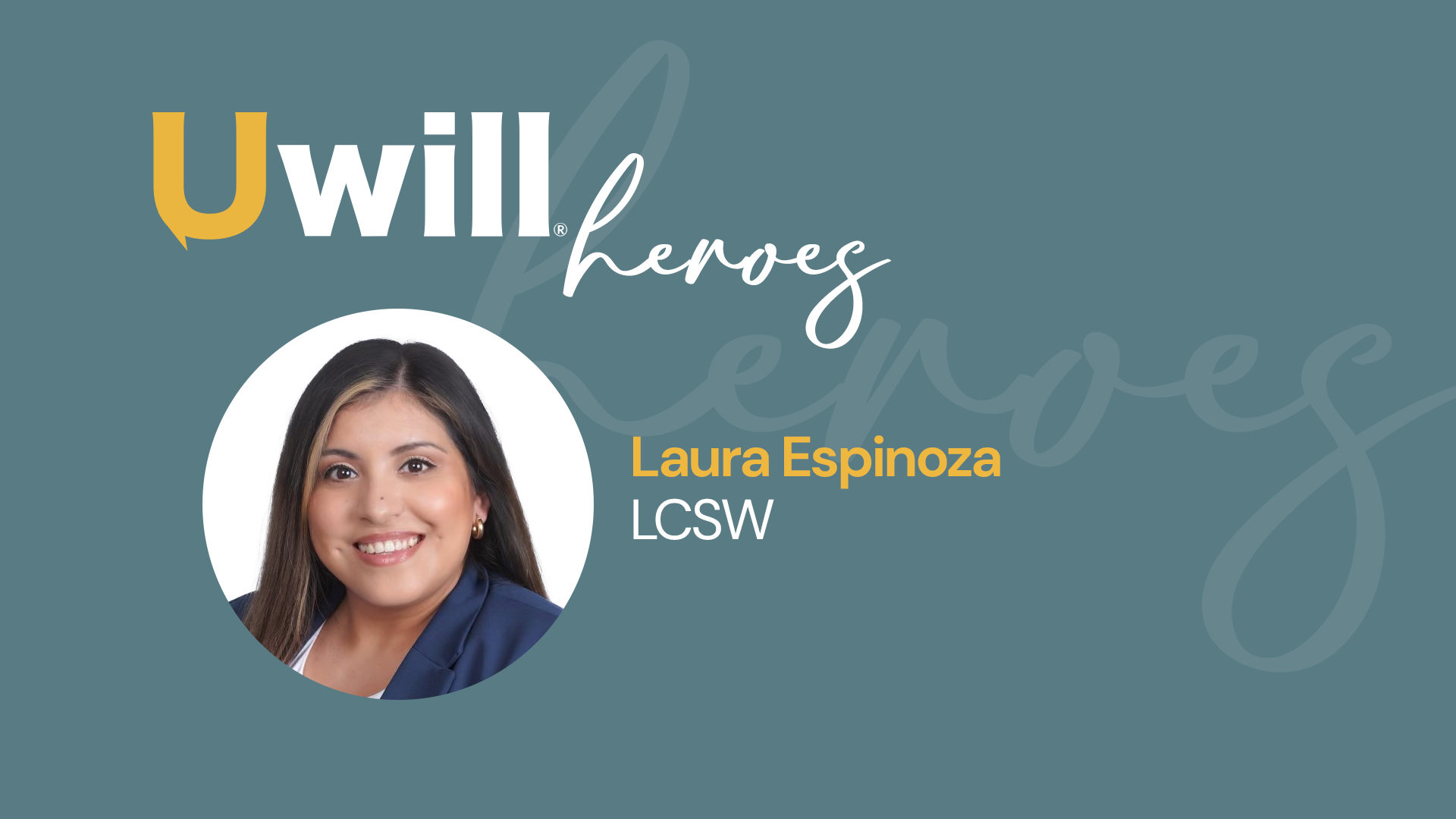Tips for Adjusting to Life On Campus
There’s no denying that moving away to college for the first time can be one of the most exciting and intimidating transitions in our lifetime. For many, this transition will be the first time living away from home for an extended period of time. Some students will embrace this change, others may feel anxious about what’s to come, but no matter how a student feels about transitioning to on-campus living, it is 100% completely normal to need an adjustment period.
Fortunately, Uwill is here to help you understand the experience and when to seek support! Here are some common challenges students need time to adjust to and some helpful tips from our team of licensed counselors to help make the transition as smooth as possible.
Homesickness
It is completely normal and okay to feel homesick while away at college. For many first-year students this will be the longest stretch of time spent away from their families, friends, hometowns, and everything else that makes home home. In fact, according to US News & World Report, 70% of all first-year students experience homesickness. Though the feeling can happen at any time, it is most common during the first few months away. It is worth noting that first-year students are not the only ones that homesickness can affect.
“Homesickness can be triggered by a wide variety of events small and large.” says Erin Andrews, LMHC, LPCC and Uwill’s Director, Clinical Affairs “It can be things like eating a meal that your family usually ate together, feelings of loneliness, or even changes in the climate between your hometown and your college campus.”
 Tip: Through calls, text, social media, and other mediums, staying connected to home has never been easier. However, it is important to not become too reliant on focusing on what’s going on at home that you end up missing out on what campus has to offer and developing a support system on-campus. Try to set time aside once a day to once a week to call someone from home. Gradually, your support system on campus will increase through speaking with classmates, joining organizations, and socializing via campus events. In time, you will not feel as pressed to be reaching out to home as consistently.
Tip: Through calls, text, social media, and other mediums, staying connected to home has never been easier. However, it is important to not become too reliant on focusing on what’s going on at home that you end up missing out on what campus has to offer and developing a support system on-campus. Try to set time aside once a day to once a week to call someone from home. Gradually, your support system on campus will increase through speaking with classmates, joining organizations, and socializing via campus events. In time, you will not feel as pressed to be reaching out to home as consistently.
Culture Shock
The thing about new places is that they are new! There are a number of factors that can contribute to feelings of culture shock such as language, accents, fashion, hobbies, TV shows or sports that people watch. Even simple things like the weather can be new to us. While some local customs may feel strange, learning and embracing new ideas and practices are all a part of the college experience.
Examples of culture shock can include:
- A Florida-raised student attending school in Michigan may not have any idea how to properly dress during a long, cold winter.
- An only child may suddenly find themselves not only living with a roommate, but on an entire floor filled with people their own age with limited alone time.
- A city-raised student may attend school an hour from home in a more rural part of the state only to quickly realize their new town may not offer certain goods and services they’ve grown accustomed to like public transportation.
No matter what the circumstances are, moving onto campus for the first time presents a new set of living conditions that practically everybody will have to adjust to.
 Tip: Connect with various campus communities such as clubs, study groups, intramural sports, or even try socializing with those living in your dorm. Talk with your peers or RAs about your experience and curiosities! Exposing yourself to new cultures is the best way to understand them and begin to appreciate the differences rather than feel intimidated by them.
Tip: Connect with various campus communities such as clubs, study groups, intramural sports, or even try socializing with those living in your dorm. Talk with your peers or RAs about your experience and curiosities! Exposing yourself to new cultures is the best way to understand them and begin to appreciate the differences rather than feel intimidated by them.
Balancing Workloads
Between balancing school, extracurriculars, jobs, and relationships, managing college workloads can be one of the most common challenges for students adjusting to life on campus. Simple things like knowing how much time it takes to get from one class to another, what to do with downtime in between classes, and how to make time for coursework and studying are much different than what most students will be used to. Learning to manage one’s time is a key aspect of successfully navigating a higher education environment.
Tip: While everybody’s circumstances are different, try utilizing time management tools such as a calendar, a daily planner, or certain apps that can help break down the who, what, where, when, why of your time. Additionally, your academic advisors and RAs can be a big help here to understand what has worked well for other students who have been in your shoes.
Adjusting to School Work
More likely than not, the format of some college classes will be totally new to certain students. Larger universities may have lecture halls with hundreds of students while other schools will offer curriculum totally or partially online. Not to mention, the material will most likely be more academically challenging than it was in high school.
Tip: Most schools will offer some sort of academic assistance to students in need of help. This includes tutoring centers, office hours with professors, or even student organizations dedicated to the study of certain subjects. Try learning what your school has to offer and be sure to utilize those resources if needed.

Managing Finances
The cost of going to college typically extends beyond tuition fees. As US News notes, living on campus can present new financial challenges for students such as dining out, books and supplies, attending campus sporting events, commuting, club fees, and other one-off expenses such as parking tickets. Not every student will have the time or ability to find gainful employment so it’s important to realize that forming bad spending habits can quickly drain your bank account.
Tip: Create a budget to track and manage spending. Making a plan can be as simple as assessing how much money you have, how much money you earn weekly, and tracking how much you are spending on a weekly basis. This will tell you how much you are either gaining or losing per week and will help identify where to cut back on spending as needed.
Consistent Self-Care
Now that you’re living unsupervised it’s easy to stay up late, eat whatever, and enjoy a lazy day on the futon. However, it is important to remember that you still have both a body and a brain to maintain. Self-care can take many different forms and what works for you may not work for someone else. Be mindful of your school’s resources such as a gym, counseling centers, clubs, and dining options.
“Create structures that lean into healthy habits like consistent sleep schedules, and utilize school resources for support as needed.” says Andrews “At the end of the day, give yourself compassion and grace as adjustment takes time.”
Tip: Familiarize yourself with the resources offered by your school, especially when it comes to mental health. Learn if there is an on-campus counseling center or school specific crisis number, know how to reach out, and know where it is located and their hours of operation. You can also ask your counseling center what resources are available at nights and on the weekends should you need assistance.

![]()
At the end of the day, give yourself compassion and grace as adjustment takes time.
Erin Andrews, LMHC, LPCC,
Uwill Director, Clinical Affairs
How Uwill Can Help
If you are looking for help with your mental health and wellness as you adjust to living on campus, Uwill offers tools that provide immediacy, choice, and no barriers to receive support. Through Umatch, students can book a teletherapy appointment with a licensed counselor of their choosing based on their needs and preferences. Booking an appointment takes less than five minutes and same day appointments are available.
Uwill also offers Urise, our wellness component designed to complement therapy. With Urise, students can access on-demand wellness programming such as yoga, meditation, nutrition, sleep, and more.
Adjusting to campus isn’t easy for everyone and that’s okay. With the right tools, proper planning, and knowing/using the resources your school has available, soon enough you won’t even remember how much you were missing home.
If you are looking for help:
If you are looking to bring Uwill to your organization:
Share this:
![]()
Uwill is a Teletherapy Educational Partner of NASPA
![]()
Uwill is the Exclusive Teletherapy Education Partner of the Online Learning Consortium
Resources

Copyright © 2024 Uwill | 1075 Worcester St, Natick, MA 01760 | 833-99-Uwill








